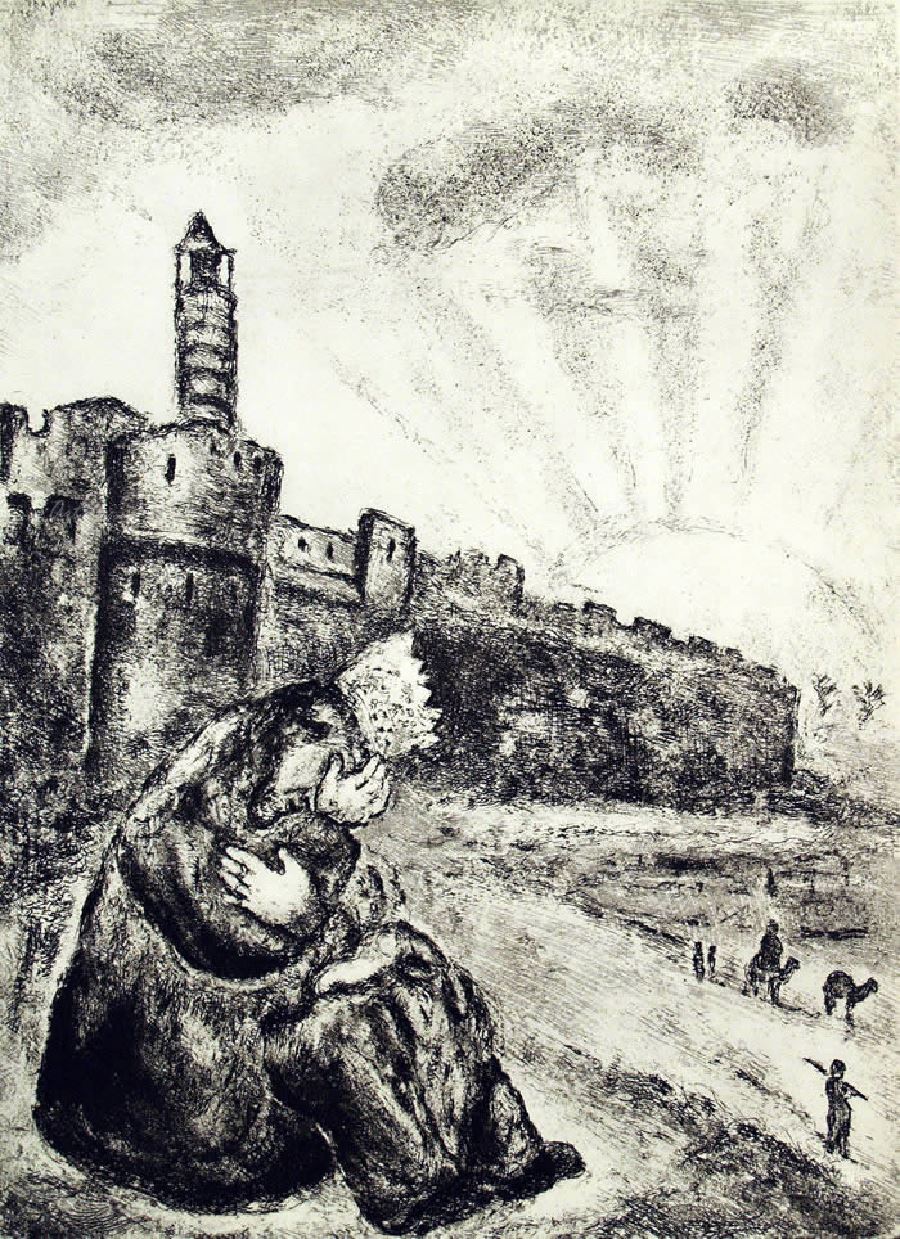Spiritual Sunday
As one who has lost a son, the story of Absolom—today’s Old Testament reading—resonates with me. Although Absolom rose up in rebellion against David, the king ordered his men to “deal gently” with him, and he experienced heartrending grief when they killed Absolom instead:
The king was deeply moved, and went up to the chamber over the gate, and wept; and as he went, he said, “O my son Absalom, my son, my son Absalom! Would I had died instead of you, O Absalom, my son, my son!”
Henry Wadsworth Longfellow wrote a poem about the episode for a friend who lost his son to yellow fever. The poem is the best kind of condolence since it does no more than acknowledge the pain—which is to say, it does not moralize or offer shallow consolations.
Through the image of the grieving king, the poem gives the father something to hold on to. Even though the episode occurred “so long ago,” Longfellow’s friend is not alone but one of a long line of fathers who have lost sons. In my own case, I derived a little comfort in knowing I was one of many. If others had trod that path before, then I could as well.
In such moments, one is simultaneously aware of present pain and past history. Or perhaps more accurately, the present merges with the past and one sees oneself as an ancient king, his head in his hands. In the word “chamber” I hear the chambers of the heart, opening themselves to grief as a gate opens. Distinctions are swept away as all parents throughout history mourn as one:
There is no far nor near,
There is neither there nor here,
There is neither soon nor late,
In that Chamber over the Gate,
Nor any long ago
To that cry of human woe,
O Absalom, my son!
The poem also gets it right in noting that the death being “a common grief” doesn’t lessen the pain. Ours indeed is the bitterest loss.
The Chamber over the Gate
By Henry Wadsworth Longfellow
Is it so far from thee
Thou canst no longer see
In the Chamber over the Gate
That old man desolate,
Weeping, and wailing sore
For his son, who is no more?
O Absalom, my son!
Is it so long ago
That cry of human woe
From the walled city came,
Calling on his dear name,
That it has died away
In the distance of to-day?
O Absalom, my son!
There is no far nor near,
There is neither there nor here,
There is neither soon nor late,
In that Chamber over the Gate,
Nor any long ago
To that cry of human woe,
O Absalom, my son!
From the ages that are past
The voice comes like a blast,
Over seas that wreck and drown,
Over tumult of traffic and town;
And from ages yet to be
Come the echoes back to me,
O Absalom, my son!
Somewhere at every hour
The watchman on the tower
Looks forth, and sees the fleet
Approach of the hurrying feet
Of messengers, that bear
The tidings of despair.
O Absalom, my son!
He goes forth from the door,
Who shall return no more.
With him our joy departs;
The light goes out in our hearts;
In the Chamber over the Gate
We sit disconsolate.
O Absalom, my son!
That ‘t is a common grief
Bringeth but slight relief;
Ours is the bitterest loss,
Ours is the heaviest cross;
And forever the cry will be
“Would God I had died for thee,
O Absalom, my son!”
